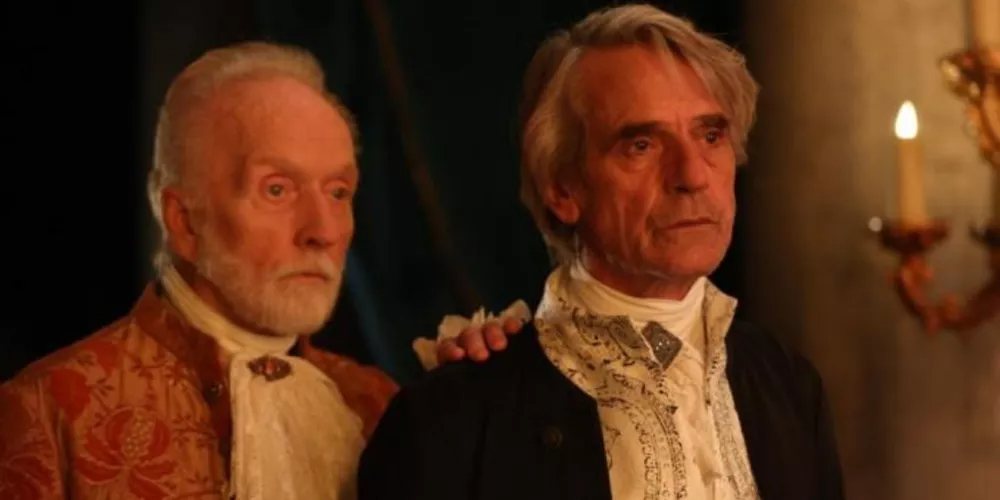A recent horror film phenomenon that is leaving viewers shivering down their spines is called “The Cello.” This English and Arabic-language horror film, directed by Darren Lynn Bousman, is well-known for its work on the venerable “Saw” franchise. It is gaining attention for both its important role in Saudi Arabia’s developing film industry and its spine-chilling story.
The plot revolves around an aspiring cellist who, upon acquiring an apparently innocent cello, learns that it is cursed with a centuries-old history, sending his life into a terrifying spiral. The story of “The Cello” is an interesting feature that deepens its appeal. Does this terrifying story originate from literature, or is it just the product of the filmmaker’s imagination? tvacute break down everything!
Is The Cello Movie Based on a Novel or a True Story?
The film “The Cello” is based onTurki Al Alshikh‘s book of the same name. It is a work of fiction that came from a poet and writer from Saudi Arabia; it is not based on a factual story. The literature provides the source material for the compelling story that is shown on screen, laying the groundwork for the cinematic experience. The story is not based on actual occurrences, even if it has mystical aspects and a centuries-old curse. Instead, it is the result of artistic imagination. Combining Alalshikh’s written work with the film’s visual storytelling gives the horror genre a new dimension and highlights the teamwork of the filmmakers who brought this story to the big screen.
The choice to adapt Alalshikh’s book for the big screen is a conscious attempt to combine Hollywood’s visual extravagance with the Arabic storytelling tradition. This combination not only distinguishes “The Cello” as a horror movie but also establishes it as a cultural bridge, demonstrating to a global audience the storytelling talent of the Arab world.
The global scope of this cinematic project is highlighted by the principal photography, which lasted more than 100 days and took place in a variety of places, including Saudi Arabia, Egypt, Vienna, Prague, and Iceland. A novel’s core must be captured in a way that appeals to both local and international readers during the painstaking process of translating words into images for a film adaptation.
Co-producer Raul Talwar, who oversees cinema at Alamiya, stated that he hopes to establish a standard for production quality with “The Cello.” He emphasized the importance of this being among the first Saudi horror films in an interview with The National, stressing the intention to display excellent production values. This goal is in line with the overarching plan to expand the Saudi film industry and make it known internationally.
The highly regarded American director Darren Lynn Bousman, who was selected to direct “The Cello,” has a plethora of expertise having directed four films in the adored “Saw” genre. His words, which he made following the film’s debut in Riyadh, capture the bizarre essence of the occasion. Bousman expressed gratitude for the opportunity to collaborate with Arab celebrities and for the once-in-a-lifetime opportunity to combine their skills with those of Jeremy Irons and Tobin Bell.
Niko Ruokosuo, the executive producer and chief operational officer of the movie, highlighted the international cooperation that pervaded the production. The crew of two hundred and fifty was international in nature, with members from the United States, Saudi Arabia, Lebanon, Canada, Italy, Egypt, Africa, India, Ireland, Tunisia, Jordan, Dubai, and the United Kingdom among them. In addition to bringing diverse viewpoints together, this global synergy enhanced the film’s depth and cultural relevance.
It is impressive that Turki Alalshikh took the initiative to incorporate the local people in the filmmaking process. Thousands of applications were received in response to the request for help and internships, demonstrating how keen Saudi youth were to join the developing film industry.
To sum up, “The Cello” is more than just a horror movie; it’s a monument to the changing storyline of Saudi Arabian filmmaking. As audiences set off on this cinematic adventure, they get the chance to really turn the pages of the book on their hands and see how words are transformed into a visual story that cuts across cultural barriers. “The Cello,” with its literary origins, proves the effectiveness of storytelling—a language that speaks to all people and can be both enthralling and terrifying.
